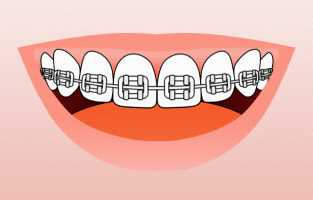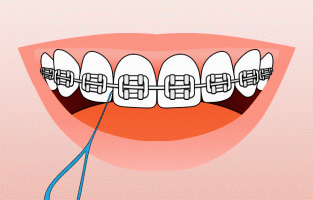Brushing & Flossing
Brushing and flossing are incredibly important during orthodontic treatment. Braces and even Clear Aligner treatment provide more areas for bacteria to hide, so it is especially important to clean any food debris or plaque from your teeth after each meal during orthodontic treatment.
WHAT HAPPENS IF YOU DON’T BRUSH?
In the case of braces, if plaque is not removed from around the bracket, small “white spots” can result from demineralized enamel. In the case of aligner therapy, if you eat and then replace your aligners without brushing or rinsing, small pieces of food will sit on your teeth.
Brushing and flossing keep the number of bacteria in your mouth to a minimum. Excess bacteria can lead to inflammation of the gums as your body tries to fight off the infection of bad bacteria. This puffy gum infection is called gingivitis. If the infection is severe and not properly controlled, it can even damage the bone which hold teeth in place. This is called periodontitis. Excellent oral hygiene is necessary to maintain a healthy oral environment during orthodontic treatment.
HOW OFTEN SHOULD YOU BRUSH?
We recommend brushing 3 times per day for optimal oral health. Once in the morning, once in the afternoon, and once after your last meal of the day. Brushing should be thorough and should take you AT LEAST two full minutes, while you gently massage every surface of every tooth for a few seconds, as well as the areas where the gums meet the teeth.

Flossing is just as important because it cleans the area in between teeth where the toothbrush cannot reach. Proper flossing is paramount in preventing gingivitis or periodontitis. We strongly recommend the WaterPik or similar water flosser for our patients with braces, as traditional flossing with braces can be time consuming.
If you have questions about how to brush or floss with braces, feel free to contact our Plantation or Ft. Lauderdale orthodontic offices and ask a member of our team!


